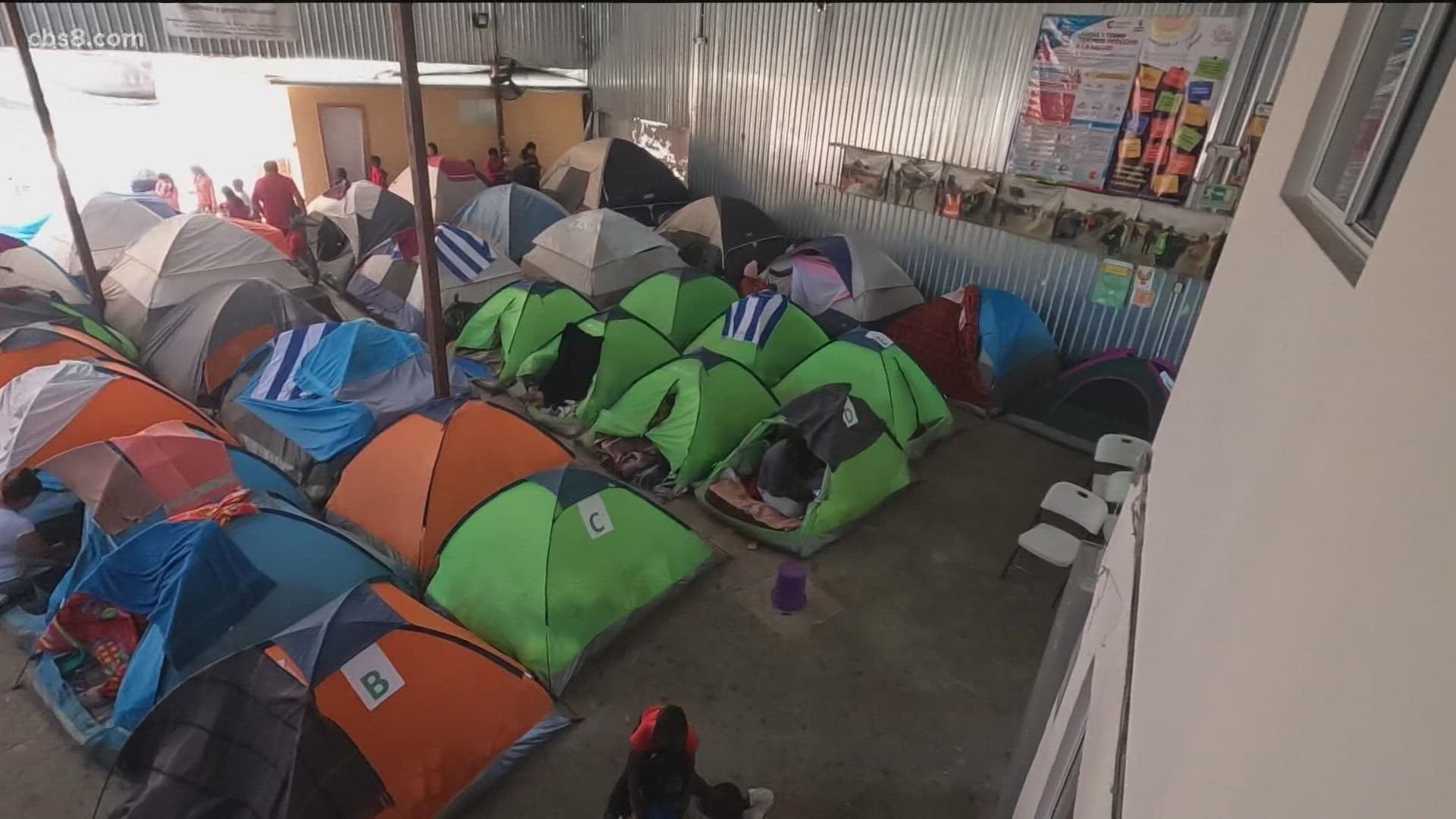TIJUANA, Baja California — More Ukrainian refugees are coming across the border right now, while it's another day of waiting for tens of thousands of immigrants from other countries.
CBS 8’s Shannon Handy visited Mexico to hear from those immigrants, as well as those who are helping them.
A few hundred feet from ‘Ped West’ where Ukrainian refugees are processed before entering the United States is a building which used to house a bar. It's now a drop-in center for refugees from other parts of the world who have been waiting months or years to get into the U.S. It's called Madres Deportados en Accion, or Deported Mothers in Action.
Maria Galleta started the center a decade ago to help women deported from the United States.
"Instead of looking for people in the streets, they can come here and I can help them," said Galleta.
But, over the past couple of years, it's evolved into a place where people seeking asylum can go as they wait, and hope for their opportunity to enter into the United States.
"Over a year, more than a year. The Haitians have been here longer," said Galleta.
Here, Galleta gives them clothing, toiletries and food. She also offers classes like English and sewing, so they can make a living during the asylum process.
Galleta, who lives in San Diego, and commutes to Tijuana daily, has long been involved in social work. She's helped not only immigrants and refugees, but people with AIDS and cancer.
The motivation behind it all? The loss of her son, Rudy Junior.
"He was 18 months old. He died from cancer," she said.
The help Galleta offers has become crucial as an estimated 20,000 asylum seekers are said to be living in Tijuana.
The area's largest shelter is called Cuidad de Dios. It’s a growing village housing 1,100 refugees, mostly from Haiti and Central America, many of them children.
Galleta says it's difficult for her to see their faces, knowing their futures are uncertain.
A pandemic border policy known as Title 42 has put refugees' legal right to apply for asylum on hold.
The exception - Ukrainians who have been allowed in under humanitarian parole, which supporters say is necessary since their country is in the middle of an active war.
Galleta said she understands why Ukrainians can enter the U.S. She just wants more clarity for others wishing to do the same.
“For me, it's better to know what's going to happen and still be waiting all this long, you know? To tell them yes you qualify or no you don't qualify," said Galleta.
Title 42 ends in May, at which point Homeland Security said it will start processing more claims.
As for Galleta, she'll continue doing what she can, saying as long as there's a need, she'll be there:
"I cannot change what they're going through, but I can make a little difference with the person who comes in this place."
Watch Related: Full Interview | Young Ukrainians waiting for asylum at U.S. border in Mexico (Apr 9, 2022)

